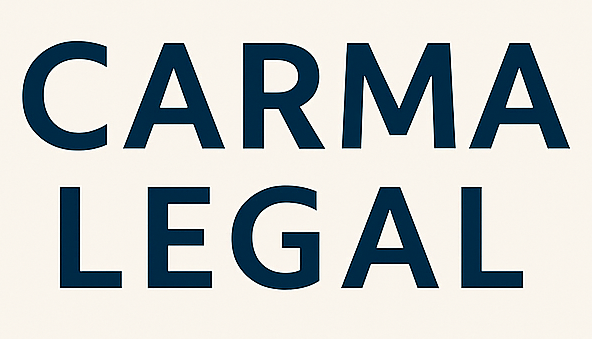As you plan to safeguard your wealth and protect your legacy, working with an asset protection trust attorney can provide the expertise and guidance you need. Your attorney helps design and implement a trust structure that shields your assets from creditors, lawsuits, and unexpected legal challenges. In this guide, you will learn what to expect at each stage—from your first consultation through ongoing trust management—to ensure your estate planning goals are met with confidence and clarity.
Understanding your attorney role
An asset protection attorney focuses on designing legal strategies that keep your property and investments out of reach from potential claims. When you engage counsel, expect them to:
Attorney responsibilities
- Evaluate your financial profile, including real estate holdings, investment accounts, business interests, and personal property
- Recommend trust vehicles—such as irrevocable trusts or domestic asset protection trusts—that align with your goals
- Draft and review trust documents, ensuring enforceable “spendthrift” clauses and clear beneficiary designations
- Coordinate with tax advisors and fiduciaries to address compliance and reporting requirements
Scope of services
Your lawyer will often handle:
- Negotiating trust terms and trustee powers
- Advising on state-specific rules for creditor protection
- Guiding asset transfers into the trust
- Managing disputes or challenges to the trust’s validity
By defining clear roles and deliverables up front, you can maintain open communication and set realistic expectations for your planning process.
Preparing for first meeting
Your initial consultation lays the foundation for a successful trust strategy. To make the most of this meeting, gather relevant information and prepare thoughtful questions.
Documents to gather
- List of assets and approximate values (real estate, business interests, investments)
- Previous estate planning documents (wills, powers of attorney, existing trusts)
- Recent financial statements and tax returns
- Details on family structure and beneficiary preferences
Key questions to ask
- What trust structures best suit my asset profile?
- How do state-specific laws affect my protection strategy?
- What timeline should I expect for drafting and funding?
- What are my ongoing obligations once the trust is in place?
Having these documents at hand and questions ready will help your counsel deliver tailored advice and streamline the planning process.
Choosing trust structure
Selecting the right trust type and jurisdiction is critical to maximizing protection.
Domestic asset protection trusts
At least 20 states—including South Dakota and Tennessee—allow you to set up a self-settled protective trust under state law, keeping assets within the U.S. while guarding against most creditor claims [1].
Offshore asset protection trusts
Offshore trusts, often formed in the Cook Islands or British Virgin Islands, can offer stronger statutory shields and enhanced privacy. These jurisdictions have specialized trust frameworks designed to resist foreign judgments [1].
Jurisdiction considerations
When evaluating options, your attorney will review:
- Creditor protection laws and fraudulent transfer rules
- Tax implications for you and your beneficiaries
- Regulatory requirements, such as annual filings and trustee oversight [2]
Your counsel’s experience with both domestic and offshore regimes ensures you choose the structure that best balances protection, cost, and compliance.
Drafting the trust agreement
Once you settle on a structure, your attorney will draft the trust instrument, tailoring each clause to your objectives.
Essential provisions
- Irrevocability clause, preventing you from reclaiming trust assets
- Spendthrift clause to block beneficiary creditors
- Trustee powers and duties, specifying investment authority and distribution guidelines
- Successor trustee appointments to ensure continuity
State compliance
Because trust laws vary, counsel ensures your agreement meets local requirements, such as notice periods, allowed trustee roles, and permissible investments. Working with an irrevocable trust attorney helps guarantee the document’s enforceability in your chosen jurisdiction.
Funding your trust assets
A drafted trust is only effective once assets are properly transferred into it.
Transferring ownership
- Retitle real estate by recording a deed in the trust’s name
- Change account registrations for bank, brokerage, and retirement accounts
- Assign ownership interests in business entities through membership certificates or stock transfers
Using limited liability companies
In some cases, placing assets into an LLC owned by the trust can provide an additional layer of separation from personal liability. Your attorney will advise on structuring and financing such entities to avoid unintended tax consequences.
Selecting a trustee
Choosing the right trustee is as important as drafting solid documents.
Trustee qualifications
- Fiduciary experience with trust administration and investment management
- Understanding of asset protection strategies and legal obligations
- Ability to act impartially for all beneficiaries
Beneficiary control
While the trustee holds legal title, you can preserve indirect control by appointing a trust protector or giving limited powers of appointment. Your counsel will explain how to balance control with the need for an irrevocable structure.
Coordinating professional advice
An asset protection plan often intersects with broader estate and tax considerations. Your attorney will collaborate with other advisors to deliver comprehensive planning.
Estate planning coordination
To align with your overall legacy objectives, counsel may recommend working alongside an estate planning attorney or a wills lawyer. This ensures your trust supports and complements your will, powers of attorney, and advanced directives.
Tax and financial advisors
Because tax laws can affect trust income, your attorney will engage with accountants or financial planners. They will address:
- Capital gains and income tax filings
- Estate and gift tax reporting obligations
- Valuation issues for transferred assets
Reviewing costs and fees
Understanding the fee structure up front prevents surprises and helps you budget for both setup and ongoing administration.
Initial setup fees
Legal fees vary by complexity. Typical ranges include:
- Domestic asset protection trusts: $2,000–$4,000
- Offshore asset protection trusts: $20,000–$50,000 [3]
Ongoing maintenance costs
Expect annual trustee fees, state-mandated filings, and periodic legal reviews. A general estimate is:
- Domestic trusts: $500–$1,000 per year
- Offshore trusts: $2,000–$5,000 per year
| Trust type | Setup cost | Annual maintenance |
|---|---|---|
| Domestic asset protection trust | $2,000–$4,000 | $500–$1,000 |
| Foreign asset protection trust | $20,000–$50,000 | $2,000–$5,000 |
Your counsel will provide a detailed fee agreement outlining all anticipated expenses.
Maintaining trust compliance
Protective structures require ongoing attention to remain effective.
Regular reviews
Schedule annual or biennial reviews with your attorney to:
- Verify trustee actions and asset valuations
- Update beneficiary designations as life events occur
- Confirm compliance with evolving state or foreign regulations
Legal updates
Because court decisions and legislative changes can affect trust protections, your counsel will alert you to necessary amendments or successor planning to maintain maximum security.
Taking next steps
With a clear understanding of each phase, you are ready to move forward.
Scheduling a consultation
Reach out to an experienced trusts lawyer or an estate planning law firm to discuss your unique situation. Prepare your financial overview and goals to get the most from your initial meeting.
Additional resources
- Working with a revocable trust lawyer for complementary planning
- Exploring advanced directives with a healthcare directive lawyer
- Coordinating probate avoidance strategies through a probate avoidance estate planning lawyer
By partnering with qualified counsel and adopting a proactive approach, you can achieve peace of mind knowing your assets are protected for the benefit of your loved ones.
References
- (Farther)
- (Ocorian)
- (Trust & Will)








